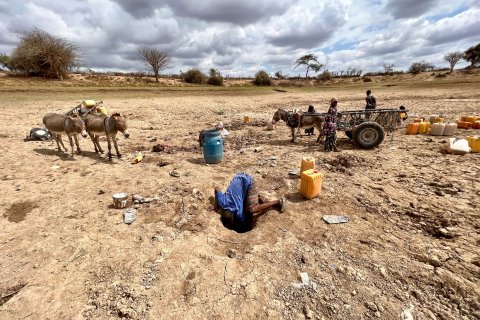"If Africa is pressured to meet external climate change timetables and cannot use its oil and gas resources internally, and has to switch to renewables before it is ready, it will create an unfair financial burden for African countries, in addition to significant economic problems," wrote CAE President NJ Ayuk in a note sent to Lusa.
"Across the continent, African countries face a dramatic insistence from voices from the West to stop oil and gas activities and immediately switch to renewable energy sources," he adds, warning however that this is impossible and harmful to the continent. which contributes the least to the emission of polluting gases.
With more than 1 million barrels pumped every day, 8 billion barrels of oil reserves and 11 billion cubic feet of gas reserves, "Angola is a country rich in resources, let's face it", writes the president of the organization dedicated to promote energy investments in Africa.
In the text, NJ Ayuk commends the Government for reforms that "pave the way for economic diversification in a context of transition to renewable energy" and says that "Angola has an opportunity to show the world that fossil fuels can play a significant role along the way. for green energy".
The use of natural gas as a transitional fuel is advocated, but "without the energy of oil and gas to fund new initiatives, green energies such as solar are in danger of failing, harming millions of Angolans who already live in energy poverty."
The country, he points out, needs time, because "it is unrealistic to think that by limiting oil production, Angola will simply adopt green energy the next day because the process takes years, if not decades," he warns.
"For the energy transition to be fair, Angola must have time to capitalize on current efforts, and it must develop its renewables industry at a speed that makes the country stronger, closing one of the main revenue sources does not push Angola into the renewables faster, it slows down progress because the country runs out of capital to finance this initiative," concludes Ayuk.
Thousands of experts, activists and policy makers will gather from Sunday in Glasgow at the 26th United Nations summit on climate change (COP26), with the main objective of halting global warming.
According to UN Secretary General António Guterres, climate change is humanity's greatest problem, and will dramatically affect the future if nothing substantial is done.
Emissions of greenhouse gases, which countries tried to control in the 2015 Paris Agreement, but which continue to rise, are already affecting the climate and nature in a variety of ways, according to the scientists.
In Africa, energy needs are estimated at 700TW (terawatts), which is 4,000 times more than the 175GW (gigawatts) of wind and solar capacity that the entire world added in 2020, so "Africa cannot industrialize using just to solar and wind energy," the economists point out.
Of the 1.3 billion Africans, 600 million do not have access to electricity, and the International Energy Agency estimates the number to rise to 30 million due to the covid-19 pandemic.
There are 48 countries in sub-Saharan Africa, excluding South Africa, which emit only 0.55 percent of CO2 emissions, but seven of the 10 countries most vulnerable to climate change are in this region.
COP26: African Energy Chamber says energy transition will take years in Angola
The African Energy Chamber (ECA) defended that the energy transition must take into account the needs of Africa, pointing to Angola as an example of good practices in the energy transition that could take decades.







